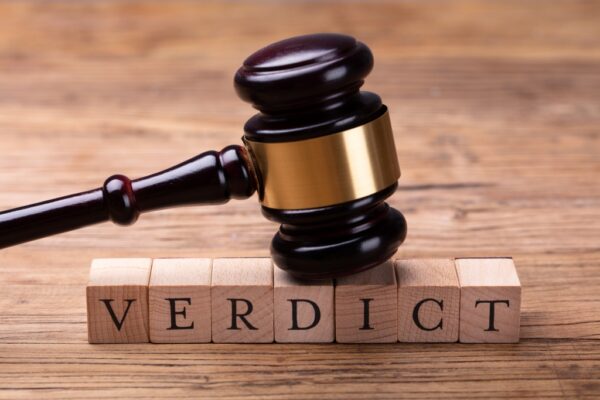
On May 26, 2023 a jury in Los Angeles, California awarded two blind students a little over $240,000.00 in their lawsuit against the Los Angeles Community College District (LACCD).
The suit was filed in 2017 by students Roy Payan and Portia Mason under the Americans with Disabilities Act (ADA) and Section 504 of the Rehabilitation Act for discrimination Payan and Mason experienced when they were denied accessible course materials and accessible software (including MyMathLab). One of Mr. Payan’s professor told him blind students weren’t welcome in his class at the school.
Before filing their lawsuit, the students tried in vain to convince the LACCD to give them the accessible tools and content they needed to succeed in their programs.
Congratulations to Mr. Payan and Ms. Mason, the National Federation of the Blind and its California affiliate who supported the case and were also plaintiffs, and to lawyers for the blind students, the law firm of Brown Goldstein & Levy and The Barbosa Group.
Jessie Weber is a partner at Brown Goldstein & Levy:
We are grateful that the jury held LACCD accountable for failing to provide an equal educational opportunity to blind students. We hope other institutions of higher learning will take heed: failing to ensure accessibility — including by maintaining inaccessible websites and educational resources—is unlawful discrimination. Jessie Weber, a partner at Brown Goldstein & Levy and co-leader of the legal team
Read Brown Goldstein & Levy’s article about the jury verdict on the firm website.
Winding road to the jury trail
This is the rare digital accessibility lawsuit in the United States that makes it all the way to a jury trial. The case had a (very) long and winding path to get to the jurors.
Mr. Payan and fellow student Portia Mason won their case in 2019, proving to the judge that textbooks, websites, databases, computer applications and other course materials were not accessible to them as screen-reader users. Read the NFB’s 2019 press release announcing the court victory.
Instead of accepting the judge’s order, the community college district appealed.
On appeal to the 9th Circuit Court of Appeals the students, supported by the NFB, won again! Read the 9th Circuit Opinion here.
When that happened, the Community College District still did not accept the court’s opinion and decided to continue fighting the students’ claims. Shockingly, this publicly-funded school district threatened to take the case to the U.S. Supreme Court.
LACCD was poised to make a dangerous argument limiting the types of cases disabled students can file under the Americans with Disabilities Act and Section 504 of the Rehabilitation Act. With a strong conservative majority on the court, the District’s arguments could have significantly weakened these two foundational disability civil rights laws in the United States.
In December 2021 the disability community mounted a national advocacy campaign to convince LACCD not to take the case to the Supreme Court. The advocacy effort was successful and the LACCD abandoned its effort to bring the case to the U.S. Supreme Court.
- Read about the advocacy campaign on the website of the Disability Rights Education and Defense Fund (DREDF)
- Read Disability Rights California’s Press Release, Disability Leaders Call on Los Angeles Community College District to Abandon Reckless Petition to Supreme Court in Accessible Education Case. As described in the release, the late, great Judith Heumann was involved in the campaign.
What’s next?
Once the community college district’s appeals were over, the case returned to the District Court to damages. Last week’s jury verdict of over $240,000.00 for Mr. Payan and Ms Mason was the result. Now the judge will be deciding other issues, including the scope of a court order that will (finally) ensure that blind students of LACCD are able to fully participate in the school’s courses.
I’m frustrated that the Los Angeles Community College District spent public money to fight this case at every turn. And I’m grateful for the advocacy of the blind students, the NFB, the legal team, and the broader disability community that made the victories in this case possible.
Whatever happens next, this verdict sends a strong message to every higher education institution in the United States about the need for accessible software, course materials, websites, and other digital content. This verdict, along with the recent “Dear Colleague Letter” from the United States Departments of Justice and Education, confirm that digital accessibility is a necessary component of educational civil rights for disabled people.
The time for excluding blind and disabled students from higher education is over. Digital accessibility makes inclusion possible. The Payan case demonstrates that accessibility is not just the right thing to do. It’s the law.